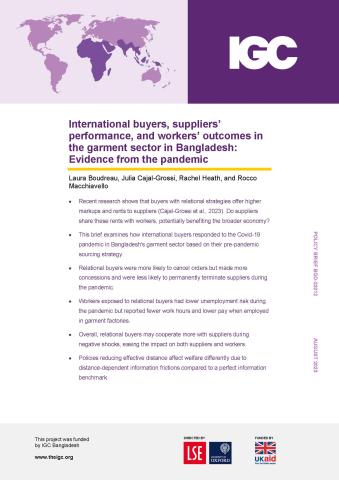-
Boudreau et al Policy brief August 2023
PDF document • 379.71 KB
- Recent research shows that buyers with relational strategies offer higher markups and rents to suppliers (Cajal-Grossi et al., 2023). Do suppliers share these rents with workers, potentially benefiting the broader economy?
- This brief examines how international buyers responded to the COVID-19 pandemic in Bangladesh's garment sector based on their pre-pandemic sourcing strategy.
- Relational buyers were more likely to cancel orders but made more concessions and were less likely to permanently terminate suppliers during the pandemic.
- Workers exposed to relational buyers had lower unemployment risk during the pandemic but reported fewer work hours and lower pay when employed in garment factories.
- Overall, relational buyers may cooperate more with suppliers during negative shocks, easing the impact on both suppliers and workers.
- Policies reducing effective distance affect welfare differently due to distance-dependent information frictions compared to a perfect information benchmark.






